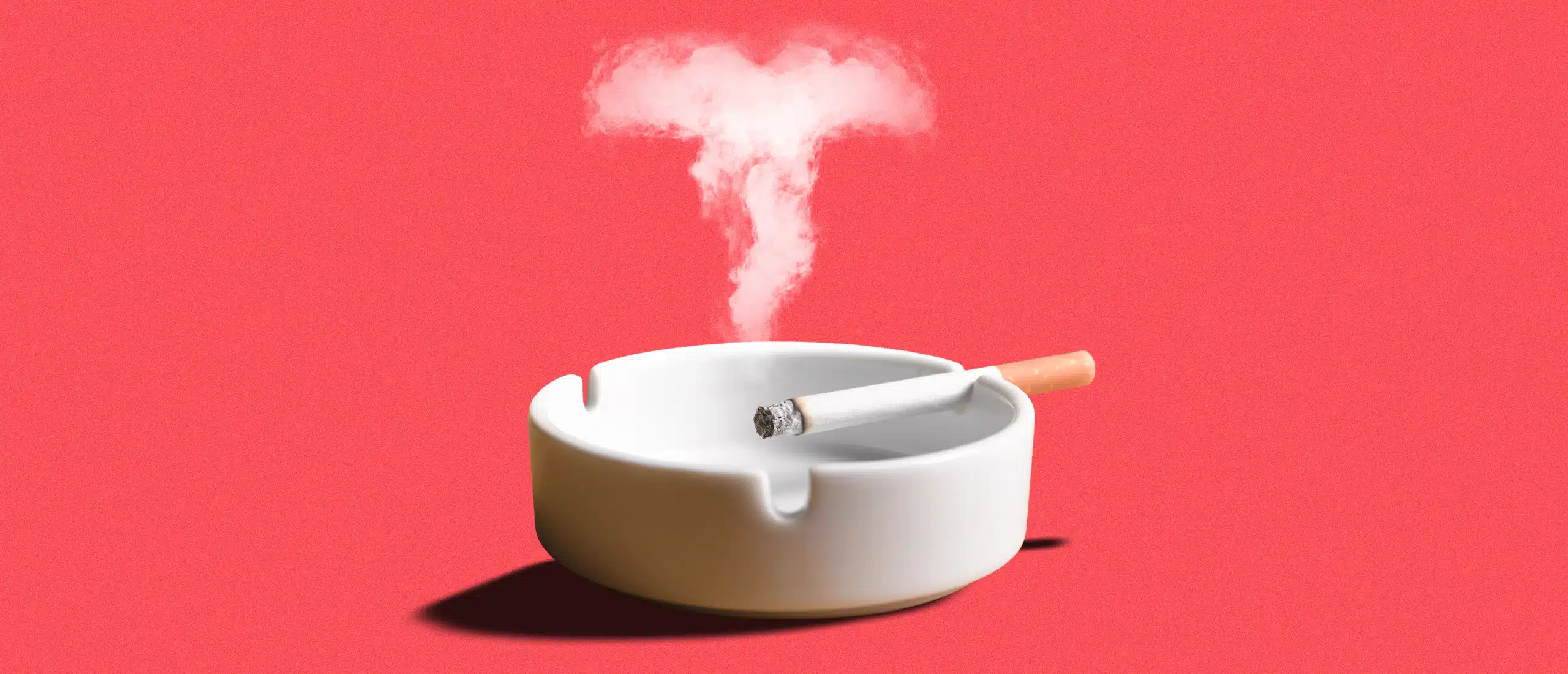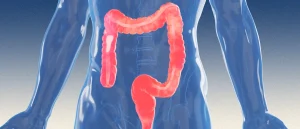Does Smoking Increase Testosterone?
In one of his controversial podcasts, pro-kickboxer-turned-manosphere-mouth-breather Andrew Tate made sweeping claims that his excessive cigar habit was responsible for his testosterone levels clocking in at “double the normal amount.”
It may be the only thing Tate has ever said that has an iota of sense behind it—and he’s still wrong. Studies do show that smoking can increase testosterone levels in the short term. But don’t reach for a lighter just yet.
Jamin V. Brahmbhatt, M.D., a board-certified urologist with Orlando Health, breaks down this phenomenon and explains why smoking is one of the worst possible routes you can take to boost your T.
Suck it, Tate.
Does Smoking Lower Testosterone?
Actually, it’s quite the opposite. A study conducted in 2001 found that testosterone levels in men who smoked were actually higher than those who had never smoked (1). Male participants who smoked had 15% higher total T and 13% higher free testosterone levels, which “increased gradually” based on how many cigarettes they smoked each day.
A 2015 review in Preventive Medicine revisited findings in similar studies and maintained that testosterone levels were often a tad elevated in men that smoke (2).
Brahmbhatt dives deeper into the study’s figures, noting that “nonsmokers had an average total T of 445 ng/dL and smokers an average total T of 391 ng/dL.” (FYI: Ng/dL is the typical measurement used in T tests).
These numbers are still within the “normal” and acceptable range of T levels, according to the Journal of Urology (3)—normal is generally thought to fall between about 300-1000 ng/dL.
Despite the observed increase in T, Brahmbhatt says, “The observed difference in T levels is likely not enough to see a significant difference in symptoms (i.e: boosted energy levels, improved sex drive, or increased muscle mass that may be experienced if a man has low testosterone).”
“[This] difference in T levels makes very little to no clinical changes or symptom changes,” says Brahmbhatt. “That being said, it’s important to stress that the difference in T that comes with smoking is NOT worth the risks to your overall body.”
Why Smoking to Boost T Is a Bad Idea
Despite the slight increase in T, smoking may have other unwanted effects on your sexual and reproductive health: Lower semen volume and reduced sperm count and quality have been associated with smoking, according to some research (4). Smoking worsens and may even cause erectile dysfunction by depleting your nitric oxide, a free radical that supports blood flow (5).
“Persistent smoking can cause many other problems that can lead to drastic changes in T levels in the future,” says Brahmbhatt. “Smoking has been linked to heart disease, cancer, diabetes, and other comorbid conditions that can decrease testosterone levels (6).”
“If you want higher T, don’t start smoking, not practical and not recommended by experts in the field,” says Brahmbhatt.
What Happens to My T if I Quit Smoking?
Although the study in the International Journal of Andrology notes a small drop in T in men who quit smoking, Brahmbhatt points out that the positive impact of quitting vastly outweighs this short lived side effect (1).
“If a man quits smoking he may have a slight drop in T levels— SLIGHT,” he says. Meaning: not enough to make a difference in his mood, libido, ability to build muscle, or energy levels.
Luckily, it’s not too late to resurrect your sexual and reproductive health even if you’ve been an avid smoker for years. Studies show that semen quality between lifelong non-smokers and guys who’ve quit is nearly identical (4).
Does Smoking Weed Lower Testosterone?
As for weed, Brahmbhatt says the potential impacts on your T are “tougher to tackle.”
Conflicting data in several studies suggest that smoking weed may slightly decrease testosterone levels (7), although others found no link between marijuana and significant hormonal changes (8).
Despite minimal recent research surrounding weed’s impact on hormones in humans, Brahmbhatt warns users to exercise caution when smoking weed.
“Research has suggested that the impact of smoking weed on testosterone levels may depend on a number of factors, including the frequency and duration of use, the potency of the drug, and the individual’s overall health and lifestyle habits,” says Brahmbhatt.
“Though inconclusive, there may be other health risks associated with smoking weed, including respiratory problems, cognitive impairment, and addiction.”
A Better Way to Boost T?
If you’re concerned about low testosterone or experiencing symptoms there are better ways to get a boost than impersonating a chimney. The first step: check your levels using Hone’s at-home assessment. Sign up, and we’ll mail you our simple and discreet assessment that only takes a couple drops of blood to test your hormone levels for these biomarkers:
- Total testosterone
- Free testosterone
- Luteinizing hormone
- Estradiol
- Sex hormone binding globulin
- Albumin
- Alanine aminotransferase
- Aspartate transaminase
If testing shows your T levels are below where they should be for your age, you can work with a physician who specializes in hormone replacement to increase them through treatments like testosterone replacement therapy.
Hone’s testosterone assessment is the simplest way to uncover whether your levels are low. It’s fast, simple, and you can do it from home. And if low T is the problem, Hone can help you get you back on top of your game.
References
-
Svartberg, et al (2006). Endogenous testosterone levels and smoking in men. The fifth Tromsø study.
-
Zhao, et al (2016). Cigarette smoking and testosterone in men and women: A systematic review and meta-analysis of observational studies.
-
Zhu, et al (2022). What Is a Normal Testosterone Level for Young Men? Rethinking the 300 ng/dL Cutoff for Testosterone Deficiency in Men 20-44 Years Old.
-
Tang, et al (2019). Semen quality and cigarette smoking in a cohort of healthy fertile men.
-
Kovac, et al (2014). Effects of cigarette smoking on erectile dysfunction.
-
Trumble, et al (2016). Associations between male testosterone and immune function in a pathogenically stressed forager-horticultural population.
-
Ugboma, et al (2012). Adolescent Cannabis Use – a Young Adult and Middle Age Urologic and Reproductive Dilemma: The Niger Delta Malady
-
Lisano, et al (2019). Performance and Health-Related Characteristics of Physically Active Males Using Marijuana.















